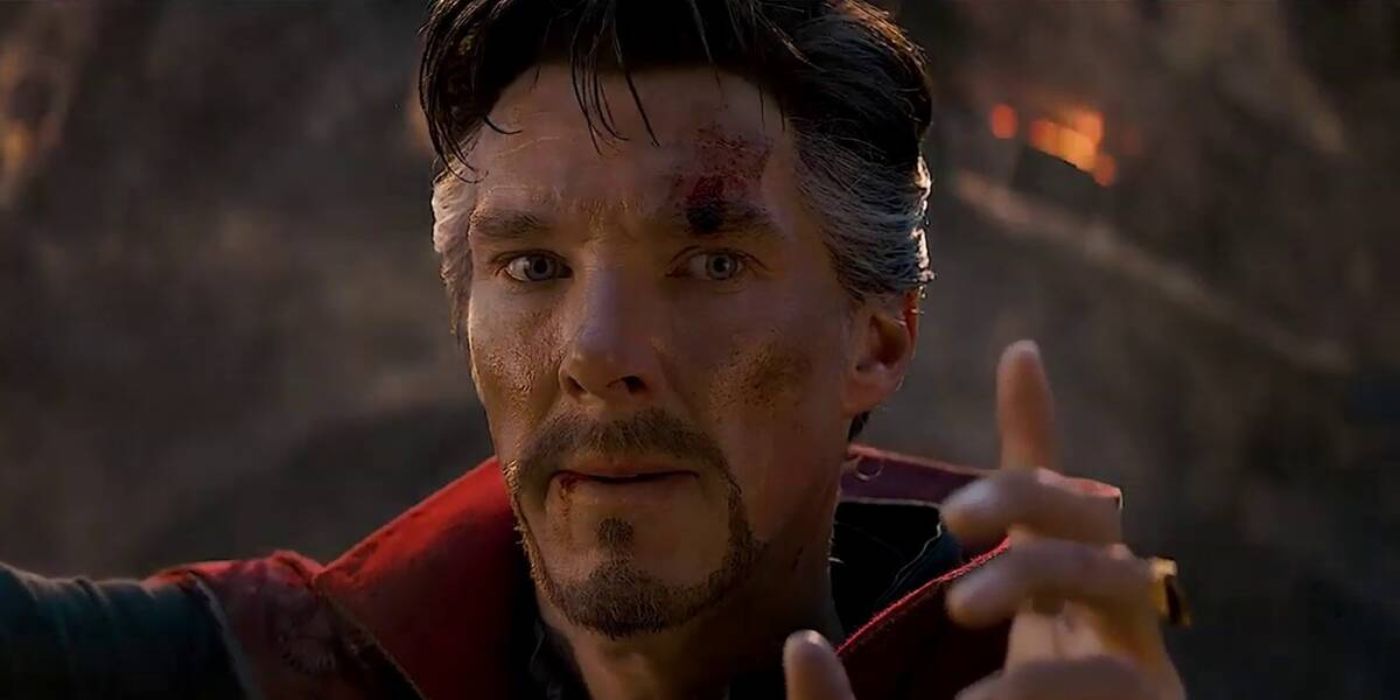The loss of Tony Stark and Steve Rogers at the conclusion of Avengers: Endgame put a hole in the center of the Marvel Cinematic Universe that has yet to be filled. It’s very much by design: Phase 4 of the franchise explicitly deals with themes of grief and loss, which includes the death of some of Earth’s greatest defenders. The Avengers have all but disbanded, with Thor off-planet and The Hulk easing into low-key retirement. Neither of them were strict leaders to begin with, and until The Fantastic Four arrive – presumably at the end of Phase 4 – that’s unlikely to change.
The de facto heir apparent to leadership of the MCU’s collected heroes has fallen to Doctor Strange, who remains committed to protecting reality and played a key role in Spider-Man: No Way Home, as well as his own Doctor Strange in the Multiverse of Madness. For better or worse, he seems to be holding the MCU together at the moment. It’s not a job he asked for, nor one he wants. And unlike both Tony and Steve, he has to be terrible to people close to him in order to do it sometimes. To quote The Scarlet Witch, “That doesn’t seem fair.”
Strange has been charged with the unenviable task of holding the MCU together even before the events of Endgame and Avengers: Infinity War. That includes acting as the bearer of bad tidings to an unconscionable number of his fellow heroes, starting with Stark in Endgame. Strange knew that the only way to stop Thanos and undo The Snap – the one possibility out of over 14 million he saw – meant that Tony would have to die. He goes through the climax of Endgame understanding that, to the point where he has to raise a shaky finger to the sky to alert Tony to move on Thanos. He’s sending Iron Man to his death, he’s well ware of it, and he has to do it regardless because it’s the only way to stop The Mad Titan.
That trend of sacrificing the few for the sake of the many has continued into Phase 4. In Spider-Man: No Way Home, he had to complete the spell of forgetfulness and basically erase Peter Parker’s life. As with Tony, he looks Peter in the eye as he’s doing so: ensuring that he understands what this is doing to a fellow hero who only wants to help people. It gets worse with The Scarlet Witch in The Multiverse of Madness. For the sake of all creation, he’s forced to stop a woman overcome with grief who really just wants to see her little boys again. That she’s a threat to the Multiverse doesn’t diminish her pain, nor his need to exacerbate it for the sake of the greater good.
One top of that comes a considerable number of personal sacrifices, starting with his wealth, which – as early dialogue in Infinity War indicates – has vanished. On a far more important level, he’s had to let Christine Palmer move on with her life with the understanding that a future with her may never be possible. He’s even lost the title of Sorcerer Supreme, which now belongs to the non-Blipped Wong, and but for Wong he would be utterly alone in his Bleeker Street mansion, with only his cloak for company. His life is as isolated as Peter’s in many ways, and while he’s hardly the only superhero to suffer for his obligations, that doesn’t make it any easier.
Indeed, the unfairness of it all is one of the things that set Marvel apart from its rival DC Comics in the early days. While Clark Kent and Bruce Wayne lived comparatively stable lives with copious resources and healthy relationships, Marvel’s roster always had relatable problems that didn’t go away just because they had superpowers. Those problems inevitably got worse owing to their double existence, to the point where those around them could be killed (Gwen Stacey being the canonical example). Strange’s heroics are no different: extracting a terrible personal cost in exchange for doing the right thing and offering no real alternative.
That’s another trait Strange shares with multiple fellow MCU figures, with his status as mystical defender in part a kind of penance for earlier arrogance and narcissism. And yet unlike, say, Tony or Thor, he hadn’t done any harm before being thrust into his current role. Certainly he was cold and difficult to get along with. But he was still a surgeon – using his skills to save lives – unlike Tony who sold weapons to terrorists or Thor who started a war with the Frost Giants in a fit of pique. Strange suffered as they did for far less, and continues to do so in the name of the mantle that neither of them are capable of carrying any longer. It may be necessary, but he certainly didn’t ask for any of it. In the MCU, even the likes of Stephen Strange still can’t catch a break.
Doctor Strange in the Multiverse of Madness is currently playing in theaters.




